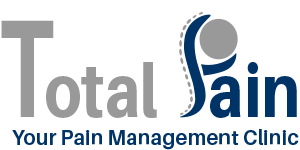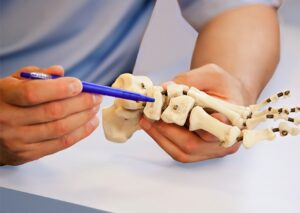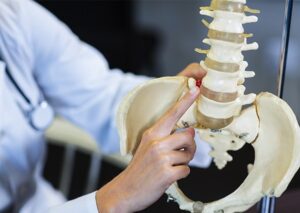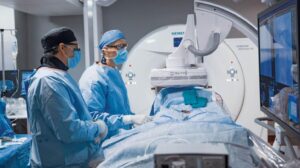Symptoms, Causes & Treatment of Neck Pain
Causes of Neck Pain
- Cervical herniated disc
- Bone spur causing nerve irritation
- Arthritis in the neck
- Spinal stenosis (narrowing of the spinal canal due to growth or bulging disc)

Neck Pain Symptoms and Diagnosis
Neck problems can cause sensations that range from tingling or a dull ache to sudden or sharp pain that prohibits your normal activity. Pain can centers in the neck, or can radiate out to other areas such as the arms. Pain can be minor or severe, and can last a short period and self-correct, or can be chronic (long-term). Neck issues can happen suddenly through an injury such as whiplash, or can develop slowly over time.
Risk factors for developing neck pain include smoking, which can contribute to degeneration of the discs, obesity and poor posture. Labor occupations and unhealthy amounts of sleep can also contribute to pain in the neck area. Other risk factors are trauma (injury), and age-related changes to the spine such as arthritis. Symptoms may include (but are not limited to):
Stiffness
Difficulty turning the head
Neck spine pain, pain in the neck, severe neck ache
Soreness
Radiating pain to other areas of the body
Tingling in the arms or fingers
Numbness in the upper limbs
Shooting pain in the neck
Pain in the center back of neck
Specialties that can help address cervical spine pain include general and family medicine, internal medicine, orthopedics, pain management, physical therapists, and chiropractors, among other groups.
To diagnose the source of your pain, your doctor or pain management specialist will ask you questions about your health and history and do a physical examination. Other tests that can help diagnose the source of your pain include X-rays, MRI scan, CT scan and blood tests.

How to Treat Neck Pain
Looking for ways to get neck pain relief? There are many treatment options and a range of therapeutic approaches.
The best pain relief method for you will depend on your individual situation, such as the cause and severity of your pain. Treatments such as ice, rest, muscle relaxants and over-the counter pain medications may give you some relief. Prescription anti-inflammatory pain medications (NSAIDS) may be prescribed if necessary. Sometimes additional therapy is required, such as physical therapy, steroid injections, and/or nerve pain medications.
Exercises and stretching can help strengthen the cervical spine and surrounding muscles. Sometimes steroid injections can provide enough pain relief to allow you to do exercises that strengthen your muscles and alleviate pain longer-term.
The Pain Center takes a conservative approach with medication management. We try to limit medications to help avoid issues with dependence. There are situations where medications can be appropriate. In these cases, medicines can be considered such as acetaminophen and nonsteroidal anti-inflammatory drugs (NSAIDS) such as naproxen and ibuprofen, opiate pain relievers, muscle relaxants and antidepressants.
Steroid injections can provide pain relief for a short-term period of time (typically three to four months). Steroid injections can be combined with other therapies for maximum benefit, such as with physical therapy and exercise. Epidural steroid injections do not work for all patients.
Therapeutic nerve blocks contain local pain medications that can control acute pain.
A minimally invasive procedure performed under fluoroscopy (live x-ray) that destroys the nerve fibers in the back that carry pain signals. This procedure can be performed in the neck, middle or lower back.
Implantable devices for pain management can be considered if other therapies are not effective. These implantable devices deliver mild electrical pulses to block the transmission of pain.
Surgery is an option for neck pain but is typically not required. Nonsurgical treatment options should be used first to try to manage pain.
In a more natural approach, or in combination with medical procedures, chiropractic care, acupuncture, and massage therapy can help with severe nerve pain for some patients.
Contact The Total Pain Clinic today to learn more about how we can help you effectively manage your back pain.

When Further Neck Pain Treatment is Required
Any further treatments required are based on the nature and severity of the underlying problem. If there is something that can be addressed by a surgeon, we will refer you to a specialist.
Some additional interventions can be performed at The Total Pain Clinic. For example, we sometimes see patients who have already had a discectomy, laminectomy, or fusion. If a patient does not respond to minimally invasive treatments, we consider aggressive




















